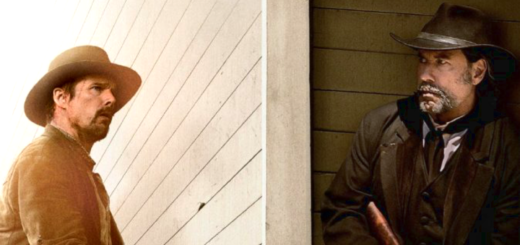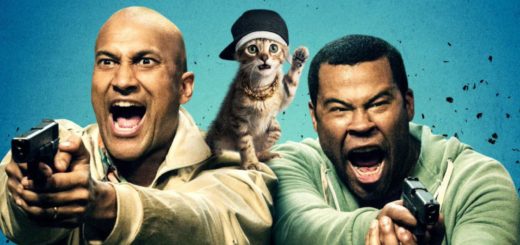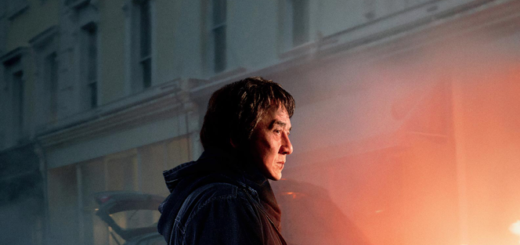THE EDGE OF SEVENTEEN Review
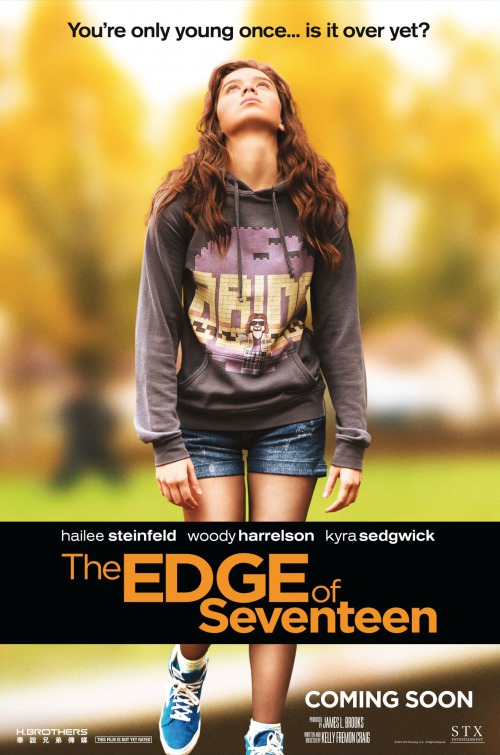
Director: Kelly Fremon
Genre: Comedy, Drama
Year: 2016
It’s hard to escape structural convention. To successfully do so, one needs fresh perspective. THE EDGE OF SEVENTEEN, from first time feature director Kelly Fremon, has young blood coursing through its veins. Delivered in an all too familiar coming-of-age shell, Fremon’s script and direction showcase a personal specificity that gives clichéd notions a new sense of life, similar to Amy Heckerling’s unique touches with CLUELESS and FAST TIMES AT RIDGEMONT HIGH. It’s low-key, but not dour, and yet never overly quirky. Further elevated by her cast’s dedicated, chemistry-laden performances, Fremon’s feature debut is tight and sincere. The truth within it stings for its unfiltered humanity. Even though the final picture sticks a little too close to ideological comfort despite its subtle efforts to stray away, it makes a strong case for the John Hughes-likes of the world, and the gentle therapy it breeds.
On paper and in beats, THE EDGE OF SEVENTEEN is completely recognizable. We have a misunderstood and misunderstanding protagonist, in this case Hailee Steinfeld’s Nadine, who enters troubled waters involving her only friend, her popular brother, and depressed mother. It’s understandable if the first instinct is to write off the structure as something already conquered and explored, but Fremon dominates these tropes with expertly witty dialogue that simultaneously subverts and lives comfortably within its own body. Woody Harrelson plays Mr. Bruner, Nadine’s only friend, and incidentally, her history teacher. In moments where this mentor character is supposed to be supportive and offer sage wisdom, Bruner launches some harsh jabs instead. The effect is still the same, but perhaps even more human and unique in its delivery. There’s a screwball nature to the way these relationships pan out, simultaneously reaching dramatic highs and belly-laugh worthy moments.
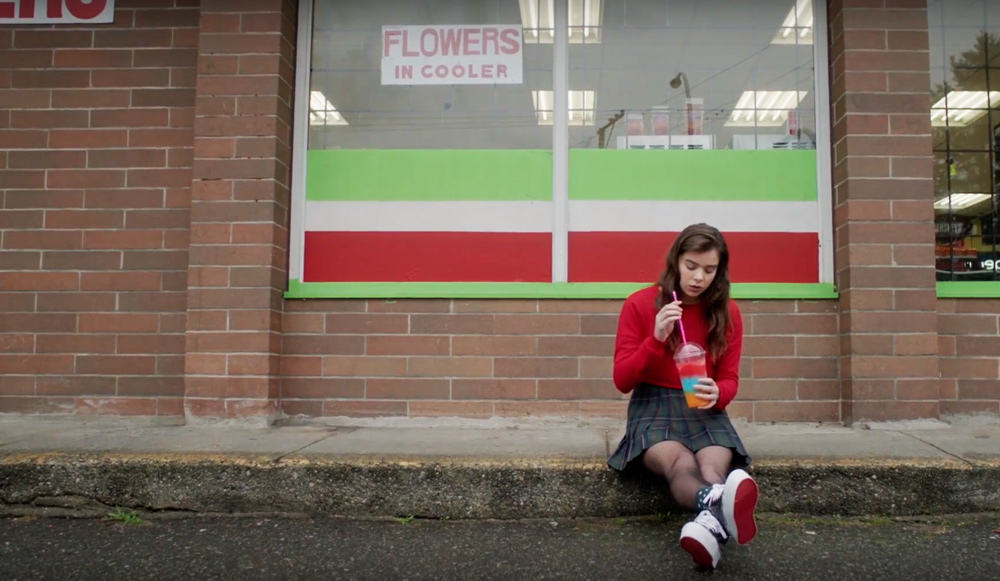
COMING-OF-AGE RULE #245: Reach Convenience Store by Act Two
Its humor and drama are gracefully intertwined because of its consistency in solid character study. This is a film exploring the existential fear of growing up, and in its best moments, this sensation is not candy coated. Fremon does not demonize THE EDGE OF SEVENTEEN’s technical antagonists, and does not romanticize the hopeless nature of its protagonist’s situations and problems. Every character has an external, and subsequently internal, struggle that complicates their relationships, be it with friends old and new, siblings, authority, or parents. Fremon’s script and direction lives in the tiny details and actions that build up over time, so when her characters make heavier decisions in emotionally and morally complex fashions, the audience is in lock-step, able to track, empathize, and understand. At one point, a character says they don’t want to “bore [someone] with the minutiae.” Fittingly ironic, that, considering it’s with the minutiae that THE EDGE OF SEVENTEEN stands out best.
The relatability of the film also hinges on the magical nature of its performances. Hailee Steinfeld has shown some immense talent throughout her career, not acknowledging her brush into the music industry. TRUE GRIT found her star in the making, while THE EDGE OF SEVENTEEN sees said star continuing to glow. She handles Baumbach levels of neuroses in an impressive, non-phony way. The little and huge moments alike are portrayed with the same infectious spirit that remains engrossing both in solitude and in groups. Her performance is made that much more successful thanks to a top notch supporting cast on the same page. Blake Jenner, Haley Lu Richardson, Kyra Sedgwick, a delightfully cast Hayden Szeto, and the aforementioned Woody Harrelson make up a cast of sassy but grounded characters fit for a Daniel Clowes venture. They get playful dialogue, but inhabit the space with sincerity underneath any and all playfulness: a refreshing mixture with peculiar but satisfying results.
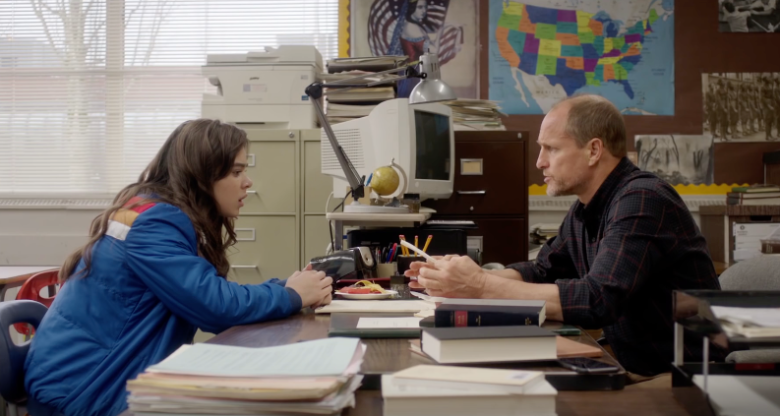
“No, it’s true, they made us fight for food on set. I ate that Hutcherson kid.”
While the film tackles previously rendered space, it’s Fremon’s outlook that elevates her film away from otherwise forgettable waters. This kind of story existing in this modern, technology driven space has rarely worked until now, utilizing the landscape of social media communication as plot, even in the smallest way. The highlighting of the painful strategy over the perfection of a text message is captured quite brilliantly. It’s real and natural in its usage, as opposed to being looked down upon or over-acknowledged. In BOYHOOD-like fashion, the film sees the smallest details of period presence, somehow making earnest nostalgia for about two years ago. While it could easily be of cheese-ball quality, Fremon plants herself in a fairly dramatic level of reality.
Frankly, THE EDGE OF SEVENTEEN could’ve gone a little deeper. It sews a base about self-love and empathy outside of the more traditional romantic comedy subplots it still maintains. There is no shying away from the protagonist and other characters’ very frank depression they deal with. Their ticks and darker personal moments are rare for the traditional coming-of-age, slipping into Alexander Payne-esque territory. But at the last minute, easier narrative whims and quirky music reign. This is a James L. Brooks production, after all. But hey, he brought us Wes Anderson. This film already proves that Fremon is a talent to be reckoned with. The fact that she handled something so seemingly trite with flying colors, making it feel true again, is promising enough. It’s slightly frustrating, but overall still functions as a step in the right direction.
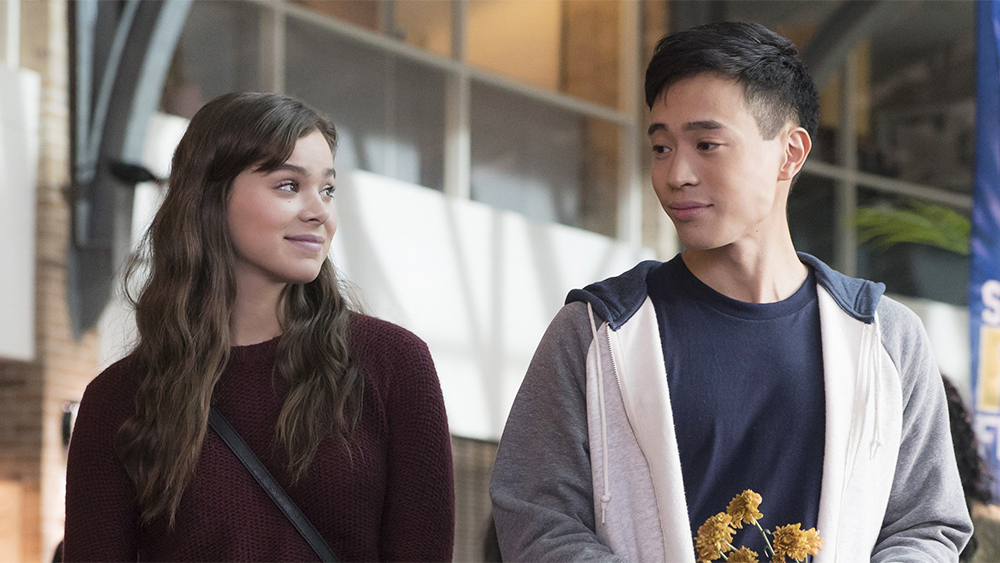
No joke, a pretty refreshing case of Asian representation. Mickey Rooney’s looking good these days
It’s comforting that there can be a John Hughes-style film emitting the best aspects of his oeuvre without obnoxiously and directly referencing the filmography itself. Minor flights of fancy rooted in youthful heart and mindset are okay to escape within from time to time. Humans are simultaneously complicated, yet fairly simple animals; it’s the desire for love and acceptance that remains consistent. If coming-of-age films are successful by the token of teaching a little something to their audience, potentially coming of their own age, then this film is one worth seeing and supporting. See THE EDGE OF SEVENTEEN to support independent cinema. See it to support the casting of people of color in prominent roles! See it to support female-directed cinema, about female experiences, and female characters of all kinds. See it because it’s also a pretty great time at the movies, good for laughs and tears in tandem. See it because Woody Harrelson needs, nay, deserves weed money.
Verdict: Recommend

